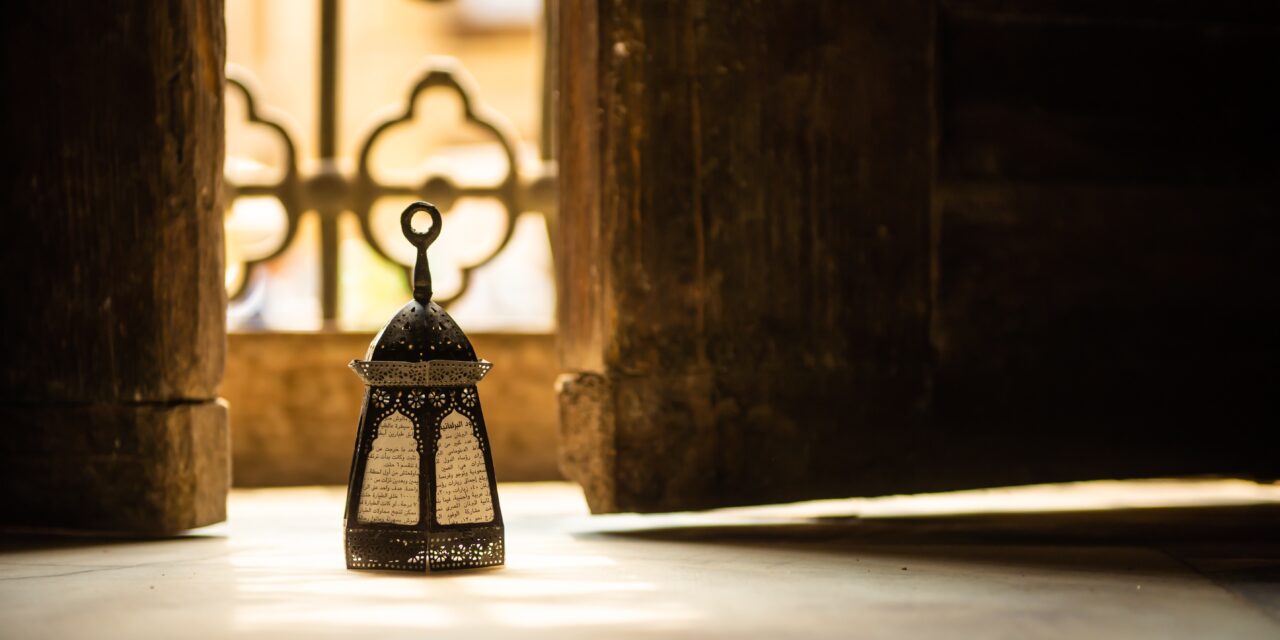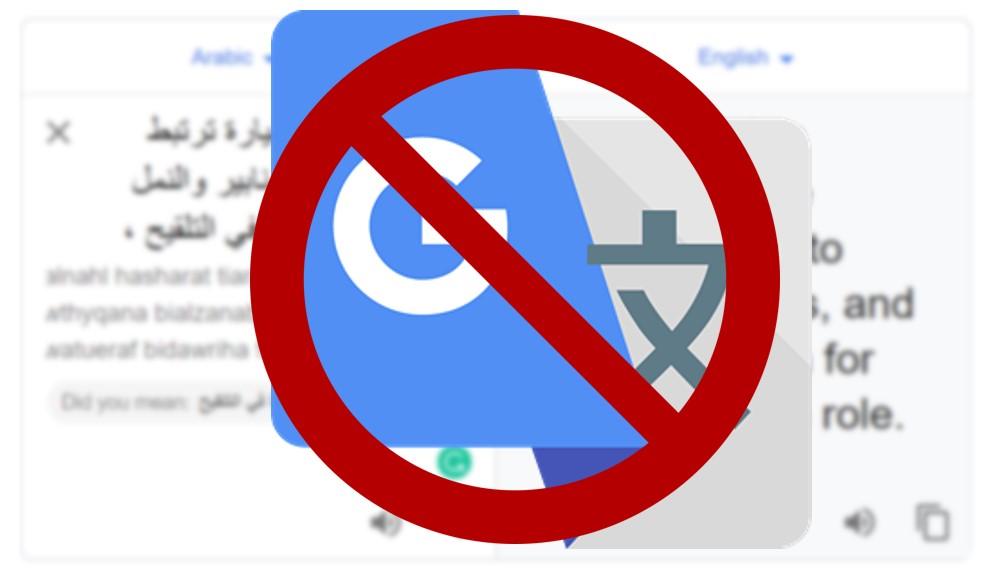Arabic language learning is a crucial component of Muslim life, as it is the language of the Quran and the key to unlocking a deeper connection with Allah. During Ramadan, the sacred month of fasting and prayer, learning Arabic takes on even greater significance.
By improving your Arabic language skills, you can deepen your understanding of Islamic traditions, enhance your prayer and worship, and strengthen your bond with Allah.
In this blog post, we will explore the power of learning Arabic during Ramadan and how it can enhance your spiritual journey. Whether you are a beginner or an advanced learner, this post will provide insights into how you can make the most of this sacred time of year to improve your Arabic language skills and deepen your relationship with Allah.
The Role of Arabic in the Islamic Tradition
As Muslims, we have a spiritual connection and a deep reverence for the Arabic language. The Arabic Language is the medium through which we access the two main sources of Islamic law, the Qur’an and Hadith. Without a thorough understanding of Arabic, it is impossible to fully comprehend the essence of Islam from its roots.
The connection between the Arabic language and Islam is continuous and significant. Every believer feels a profound love, attraction, and respect for Arabic as it is the language of the Qur’an and the Prophet Muhammad ﷺ.
Therefore, Allah, the Most High, has taken upon Himself to protect the Arabic language from any distortion or extinction. This is a testament to the importance of Arabic in Islamic history and the identity of the Muslim nation.
Furthermore, Muslims and scholars can be found all over the world, and the practice of the Arabic language is widespread. Even with a basic understanding of Arabic, one can perform necessary tasks.
During the reign of the Rashidun Caliphate (when the first four caliphs were ruling), the companions of the Prophet ﷺ travelled to various parts of the world, carrying with them the Quran, Islam, and the Arabic language. As they conquered new regions, the inhabitants eagerly learned about Islam from the companions, as well as the Quran and the Arabic language. This led to the widespread adoption and practice of Islam and the Arabic language in these regions.
Umar ibn Khattaab (May Allah be pleased with him) emphasized the importance of learning the Arabic language as it is an essential part of our religion. He said:
تَعَلَّمُوا الْعَرَبِيَّةَ ؛ فَإِنَّهَا تُثَبِّتُ الْعَقْلَ ، وَتَزِيدُ فِي الْمُرُوءَةِ
Learn Arabic, for it strengthens the intelligence and increases noble conduct.
-Shu’ab al-Eemaan, al-Bayhaqi (4/187)
Similarly, Ubai Ibn Ka’b also stressed the significance of learning Arabic by stating that we should learn it with the same importance as we memorize the Qur’an. Umar ibn Khattaab (May Allah be pleased with him) also advised the Abu Musa Ash’ari to not only learn the Sunnah but also the Arabic language.
If we can learn other foreign languages for worldly purposes, then why not learn Arabic as a means of nourishing our souls, fulfilling our religious needs, and showing our love for the beloved Prophet ﷺ? By learning Arabic, we can directly comprehend the sweetness of the Qur’an and delve deeper into the vast resources of Islamic literature.
Benefits of Learning Arabic During Ramadan
Learning Arabic during Ramadan can offer numerous benefits for Muslims looking to deepen their connection with their faith. Here are some of the key benefits of learning Arabic during Ramadan:
1. Improving understanding of the Quran
The Quran is the holy book of Islam and contains the teachings of Allah. Allah ﷻ said:
إِنَّآ أَنزَلْنَـٰهُ قُرْءَٰنًا عَرَبِيًّۭا لَّعَلَّكُمْ تَعْقِلُونَ
Indeed, We have sent it down as an Arabic Quran so that you may understand
– Surah Yusuf, Verse 2
And Ramadan is the sacred month in which Allah ﷻ has revealed the Glorious Quran. Allah ﷻ said in this regard that,
شَهْرُ رَمَضَانَ ٱلَّذِىٓ أُنزِلَ فِيهِ ٱلْقُرْءَانُ هُدًۭى لِّلنَّاسِ وَبَيِّنَـٰتٍۢ مِّنَ ٱلْهُدَىٰ وَٱلْفُرْقَانِ ۚ
“Ramadan is the month in which the Quran was revealed as guidance for mankind and as a clear sign for guidance and judgment between right and wrong.”
– Surah Al-Baqarah, Verse 285
To fully understand and benefit from the guidance of the Quran, it is necessary to have a good understanding of the Arabic language. This is because the Quran was revealed in Arabic, and the linguistic nuances and intricacies of the language play an important role in fully comprehending the message of the Quran.
Although it is not permissible to derive judicial (fiqh) rulings from the Quran without comprehensive knowledge of other branches, the Quran still provides tranquillity and guidance. As Allah, the Most High, says,
أَلَا بِذِكْرِ ٱللَّهِ تَطْمَئِنُّ ٱلْقُلُوبُ
“Surely in the remembrance of Allah do hearts find comfort.”
– Surah Ar-Ra’d, Verse 28
2. Enhancing prayer and worship
One of the most significant benefits of learning the Arabic language is enhancing prayer and worship. Ramadan is the month of spiritual cleansing and strengthening one’s relationship with Allah. In this sacred month, Muslims engage in various forms of worship, including reciting the Quran, offering Salah, and making supplications.
At least every day, we hear the sound of the Adhan, which is called in the Arabic language. By learning the 20 words of the Adhan along with their meanings and usage, one can understand the call to prayer directly from the heart without memorizing the translation of the sentence. You’re welcomed to Salah as you are reminded of the greatness of Allah and that prayer is the way to success.
Moreover, Muslims often memorise around eleven short Surahs for prayer, along with prophetic supplications: Duaa’ when starting the prayer (الثناء), Tashahhud, sending peace and blessings upon the Prophet ﷺ and his family, and various other supplications. By learning the meanings and little usage of these words in leisure time, one can gain enjoy prayer and attain Khushuu’ (calmness, serenity, tranquility, dignity and humility). This way, the heart is filled with unearthly satisfaction, and the mind is illuminated by the light of the Quran.
Therefore, by learning the Arabic language, we can understand the words of Allah and the Prophet ﷺ, allowing us to connect more deeply with our faith and enhance our prayer and worship during the blessed month of Ramadan.
3. Beautify yourself
The way we communicate with others reflects our inner world. Our knowledge, beliefs, desires, and fears are expressed through our words. Therefore, just as we dress with dignity and humility, speaking correctly is a way of beautifying ourselves.
What can be more beautiful than adorning ourselves with the language of the Noble Quran and the Prophet Muhammad ﷺ?
Ibn Shubrumah, the famous hadith collector, once said, “Men have never worn a garment more beautiful than Arabic.”
(Al-Bayhaqi, Shuab Al-Iman Vol. 4 p. 197)
By learning and speaking Arabic, we not only beautify ourselves but also connect with the language of our religion and our Prophet ﷺ, which can bring immense peace and tranquility to our souls.
4. Deepening connection with Islamic heritage
Learning Arabic also allows us to deepen our connection with Islamic heritage. The Quran and Hadith were revealed and transmitted in Arabic, and many of the great works of Islamic scholarship were written in Arabic as well – many of which have not been translated! By learning Arabic, we can access these sources in their original language and gain a deeper understanding of Islamic teachings and history.
For example, the works of Ibn Taymiyyah, Ibn Al-Qayyim and many other renowned scholars were written in Arabic. By studying their works in their original language, we can gain a deeper appreciation for their contributions to Islamic scholarship and a more nuanced understanding of their ideas.
Moreover, Arabic is not just a language of religious texts and scholarship. It is also the language of Islamic art and literature. By learning Arabic, we can gain a greater appreciation for the rich cultural heritage of the Islamic world and the contributions of Arab and Muslim thinkers, artists, and writers throughout history.
5. Facilitating communication with Arabic-speaking Muslims
Learning Arabic can also facilitate communication with Arabic-speaking Muslims, especially during Ramadan when Muslims from all around the world come together to observe the month of fasting and worship. Ramadan is a time for community, and being able to communicate in Arabic can help build relationships and connections with other Muslims.
Furthermore, Arabic is the language of conservation, and its science (Nahw and Sarf) helps to preserve Arabic culture and the authenticity of the Qur’an by providing punctuation and Harakat (Fathah, Dhammah, kasrah, and sukûn) al-Qur’an.
Additionally, knowing Arabic can be beneficial for those who plan to perform the Hajj pilgrimage to Mecca, which is an obligation for Muslims who are physically and financially able to do so. Arabic is the language used in the rituals of the Hajj, so being able to understand and communicate in Arabic can enhance the spiritual experience of the pilgrimage.
The best way to learn Arabic language During Ramadan
Ramadan is a special month for Muslims all around the world. It’s a time when people focus on spiritual reflection, fasting, and connecting with Allah. Learning Arabic can be a great way to deepen your connection with Islam during Ramadan.
There are many resources available for learning Arabic, including our own at Explore Arabic. Explore Arabic is a platform that aims to help people learn the Arabic language so that they can connect better with others and understand the Quran in a deeper way. Explore Arabic offers a range of online courses, which allow students to study from home through live lessons. Although the focus is primarily on facilitating Arabic learning, there are opportunities to learn the Quran as well.
You can get started on your journey by:
- Learning to read Quran – if you’re a complete beginner in Arabic and haven’t yet had the chance to learn to read Quran, you can schedule 50 hours to help you achieve just that. By taking private lessons, you can specify a schedule that suits you. We have English-speaking teachers ready to help you master reading Arabic with the correct pronunciation.
- Study Quranic Arabic – if you have some background in Arabic (your level is elementary or intermediate), you can take focus on studying the Arabic of specific surahs from the Quran instead of general Modern Standard Arabic. The earlier levels in our Quranic Arabic programme focus on the short Surahs which means you will have the chance to understand the vocabulary of the Surahs you read regularly.
- Study Tafsir in Arabic – do you already know Arabic but find it daunting to read Tafsir in Arabic by yourself? Or perhaps you don’t have the capacity to focus on your reading? If you’re advanced in Arabic, why not schedule in your Tafsir lessons to make sure you put in the hours you want to cover specific Surahs of the Quran. The way these lessons work is you read the Tafsir with your teacher in Arabic and your teacher checks your understanding as you work through the reading, and you have the opportunity to ask questions as you go along. You get to practice your Arabic and learn the explanation of the Surahs of your choice. We recommend prioritizing Surahs that the Prophet recommended reading regularly as there is a wisdom behind reciting these specified Surahs:
- Al-Fatihah – The mother of the Quran is undoubtedly the most important Surah we should understand in depth.
- Al-Ikhlaas, Al-Falaq and An-Naas – the Three Quls which have many purposes: it’s recommended to read them before sleeping, after Salah, in the morning and evening.
- Surat Al-Kahf – for Fridays
- Surat Al-Mulk and Sajdah – before going to sleep to protect you from the punishments of the grave
- Surah Al-Insan – for anxiety
- Surah Al-Baqarah and Ali-Imraan – for Qiyaam-ul-layl (the night prayers) – ‘Az-zahrawayn’ (the illuminated chapters) – these Surahs will be intercessors on the day of Judgement for those who recite it.
اقْرَءُوا الْقُرْآنَ فَإِنَّهُ يَأْتِي يَوْمَ الْقِيَامَةِ شَفِيعًا لِأَصْحَابِهِ اقْرَءُوا الزَّهْرَاوَيْنِ الْبَقَرَةَ وَسُورَةَ آلِ عِمْرَانَ فَإِنَّهُمَا تَأْتِيَانِ يَوْمَ الْقِيَامَةِ كَأَنَّهُمَا غَمَامَتَانِ أَوْ كَأَنَّهُمَا غَيَايَتَانِ أَوْ كَأَنَّهُمَا فِرْقَانِ مِنْ طَيْرٍ صَوَافَّ تُحَاجَّانِ عَنْ أَصْحَابِهِمَا اقْرَءُوا سُورَةَ الْبَقَرَةِ فَإِنَّ أَخْذَهَا بَرَكَةٌ وَتَرْكَهَا حَسْرَةٌ وَلَا تَسْتَطِيعُهَا الْبَطَلَةُ
Recite the Quran, for on the Day of Resurrection it will come as an intercessor for its reciters. Recite (Az-Zahrawain) the two illuminated chapters, Surat al-Baqarah and Ali Imrān, for on the Day of Resurrection they will come as two clouds, or two shades, or two flocks of birds pleading for those who recited them. Recite Surat al-Baqarah as there is blessing in it, there is sorrow in leaving it, and the sorcerers cannot confront it.
Ṣaḥīḥ Muslim 804
Whoever reads Surat al-Kahf on the day of Jumu’ah, will have a light that will shine from him from one Friday to the next.
Fayd al-Qadir, 6/198. It was classed as sahih by Shaykh al-Albani in Sahih al-Jami’, 6470
Conclusion
In conclusion, learning Arabic can be a transformative experience during Ramadan, as it deepens your connection with the Quran and strengthens your relationship with Allah. You won’t learn the whole language, but setting yourself a schedule to accomplish the first step can certainly help you get started on a routine. It is a language of immense beauty and depth, and the rewards of learning it are immeasurable. Whether you are a Muslim seeking to deepen your understanding of your faith, or a non-Muslim interested in exploring this rich and vibrant language, there is no better time than now to begin your journey.
So don’t hesitate to contact Explore Arabic for further inquiries and guidance, as we would be more than happy to help you on this path of learning and discovery.


![Theme: War and Conflict [A2 Vocabulary]](https://www.explorearabic.org/wp-content/uploads/2023/05/WP-Learning-lab-images-440x264.png)








![Theme: War and Conflict [A2 Vocabulary]](https://www.explorearabic.org/wp-content/uploads/2023/05/WP-Learning-lab-images-150x150.png)

